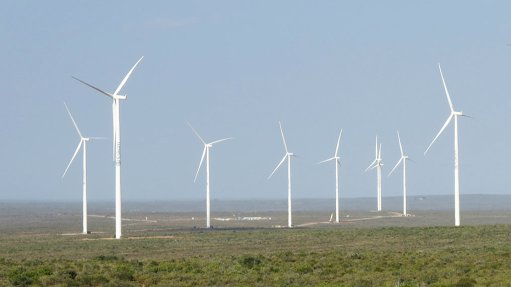Existing together in a delicate balance
Long before motivational quotes found fame on electronic media, at a time when ‘www’ meant little more than the Wild Wild West – in a World Without Windows, you could say – I was given an A3 page.
I was mesmerised, not by its appearance, as it was just a white page with very large bold black printed text. It was given to me by my athletics coach, who, unbeknown to him, became more of a life coach than an athletics coach.
The page occupied a sacred place behind my bedroom door. Every evening, as I closed out the world, I would religiously read the words, which, in a very short space of time, I would recite from memory. The words were simple, yet powerful: “Never give in. Never give in. Never, never, never, never. In nothing, great or small, large or petty. Never give in, except to convictions of honour and good sense. Never yield to force. Never yield to the apparently overwhelming might of the enemy.” These, in fact, are the words of Sir Winston Churchill, the British Prime Minister, from his speech to the Harrow School on October 29, 1941. Surprisingly, after all these years, the words have not lost their impact.
Unfortunately, the ease and simplicity of electronic media has resulted in an avalanche of motivational quotes finding their way into our lives. The challenge is not to limit one’s exposure to these quotes, but to not be numbed by the power that we find in the quotes. Personally, I have an affinity for demotivational quotes, also known as ‘uninspirational’ quotes or parody humour.
As a case in point, consider the English proverb, an apple a day keeps the doctor away, which first appeared in print in 1866. This aphorism was based on an original rhyme, eat an apple on going to bed and you’ll keep the doctor from earning his bread.
Although one could be dismissive of quotes, there is also much that one can learn from them, as well as from stories, particularly stories from our youth or stories aimed at our youth. Take the following extract, “Mufasa: ‘Everything you see exists together in a delicate balance. As king, you need to understand that balance, and respect all the creatures, from the crawling ant to the leaping antelope. Young Simba: ‘But dad, don't we eat the antelope? Mufasa: ‘Yes, Simba, but let me explain – when we die, our bodies become the grass, and the antelope eats the grass. So, we are all connected in the great circle of life.’”
This extract is from The Lion King. While viewing the movie with my young son recently, I was taken aback by the fact that, as adults, we tend to dismiss these movies as mere entertainment, without acknowledging them for what they really are. As adults, we have lost our way.
But it is not only us who have lost our way; of great concern is that South Africa’s leaders have somehow lost their way too, believing they are unconnected and can act with immunity and impunity.
The most fundamental lesson in economics is that an economy constitutes a delicate balance of coexistence, devoid of self-interest. An economy is a large set of inter-related production and consumption activities that determine how scarce resources are allocated. The production and consumption of goods and services fulfil the needs of those living and operating within it.
åßConsidering current circumstances, South Africans should heed the words of American economist and social theorist: Thomas Sowell: “It is hard to imagine a more stupid or more dangerous way of making decisions than by putting those decisions in the hands of people who pay no price for being wrong.”
Article Enquiry
Email Article
Save Article
Feedback
To advertise email advertising@creamermedia.co.za or click here
Press Office
Announcements
What's On
Subscribe to improve your user experience...
Option 1 (equivalent of R125 a month):
Receive a weekly copy of Creamer Media's Engineering News & Mining Weekly magazine
(print copy for those in South Africa and e-magazine for those outside of South Africa)
Receive daily email newsletters
Access to full search results
Access archive of magazine back copies
Access to Projects in Progress
Access to ONE Research Report of your choice in PDF format
Option 2 (equivalent of R375 a month):
All benefits from Option 1
PLUS
Access to Creamer Media's Research Channel Africa for ALL Research Reports, in PDF format, on various industrial and mining sectors
including Electricity; Water; Energy Transition; Hydrogen; Roads, Rail and Ports; Coal; Gold; Platinum; Battery Metals; etc.
Already a subscriber?
Forgotten your password?
Receive weekly copy of Creamer Media's Engineering News & Mining Weekly magazine (print copy for those in South Africa and e-magazine for those outside of South Africa)
➕
Recieve daily email newsletters
➕
Access to full search results
➕
Access archive of magazine back copies
➕
Access to Projects in Progress
➕
Access to ONE Research Report of your choice in PDF format
RESEARCH CHANNEL AFRICA
R4500 (equivalent of R375 a month)
SUBSCRIBEAll benefits from Option 1
➕
Access to Creamer Media's Research Channel Africa for ALL Research Reports on various industrial and mining sectors, in PDF format, including on:
Electricity
➕
Water
➕
Energy Transition
➕
Hydrogen
➕
Roads, Rail and Ports
➕
Coal
➕
Gold
➕
Platinum
➕
Battery Metals
➕
etc.
Receive all benefits from Option 1 or Option 2 delivered to numerous people at your company
➕
Multiple User names and Passwords for simultaneous log-ins
➕
Intranet integration access to all in your organisation

















